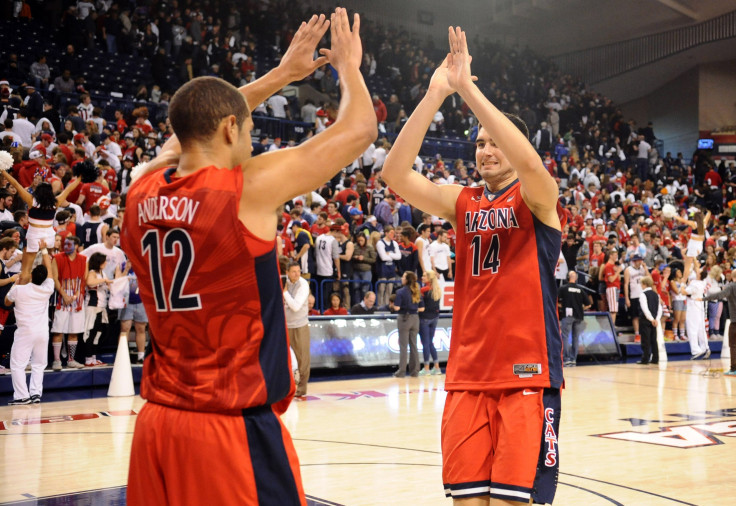Former NCAA Athletes Fare Better In Life Than Non-Athletes, Study Finds

Former NCAA athletes, in general, are more likely to lead fulfilling lives after leaving college than their non-athlete counterparts, according to the results of a recent national Gallup-Purdue Index study of college graduates released Wednesday. Former student-athletes outpaced their non-player cohorts in a number of key measurements taken by Gallup.
The group of former collegiate athletes have a better chance than those who did not play sports in college to be "thriving" — defined as "strong and consistent" — in four of five major measurements of well-being taken by Gallup. Those categories were labeled purpose well-being (56 percent vs. 48 percent), social well-being (54 percent vs. 45 percent), community well-being (51 percent vs. 43 percent) and physical well-being (41 percent vs. 33 percent). In the one remaining measurement — financial well-being — athletes were just as likely to be thriving as their counterparts. Former NCAA athletes came in at 38 percent to non-student-athletes 37 percent, essentially making the two groups even.
"The results from this study suggest that in many of these areas, substantial percentages of former NCAA student-athletes are finding success after they leave the playing field," wrote Gallup, noting that many qualities learned playing spots, like teamwork and hard work, could carry over to life. There are some 460,000 NCAA athletes that compete in 24 sports every year, and more than 80 percent of them earn at least a bachelor's degree, according to the NCAA.
Former Student-Athletes Are Winners in #WellBeing... https://t.co/Z3jUDA4O3w pic.twitter.com/1d4VH1CpJ3
— GallupNews (@GallupNews) February 17, 2016
In total, 47 percent of graduates who were former NCAA athletes were thriving in three or more areas, compared with 40 percent of non-student-athletes. About a quarter of former student-athletes thrived in four or more areas, compared with 22 percent of non-student-athletes.
Purpose well-being looks at motivation to achieve goals; social and community well-being measure a person's engagement in their area and with peers; while thriving in physical well-being means "having physical health that is near-perfect and feeling active." Financial well-being looked at how well people managed their economic lives and their financial security.
The results come from a new report called Life Outcomes of Former NCAA Student-Athletes and is based on the national Gallup-Purdue Index, which polled tens of thousands of U.S. adults that had completed at least a bachelor's degree from Feb. 4-March 7, 2014. Gallup said it interviewed 1,670 former NCAA student-athletes about their lives and compared their responses with 22,813 non-student-athletes who graduated from the same institutions.
© Copyright IBTimes 2024. All rights reserved.






















